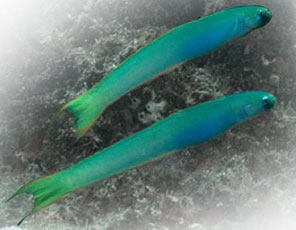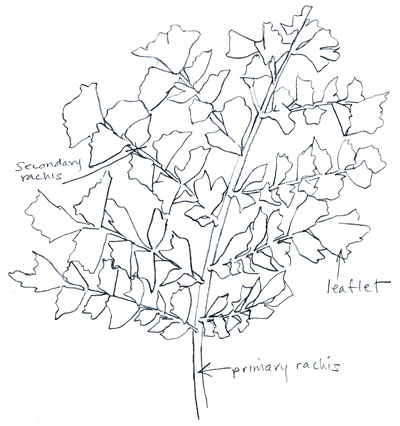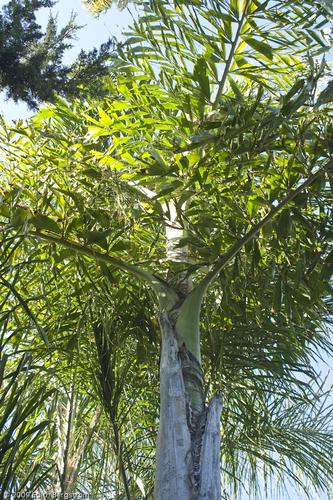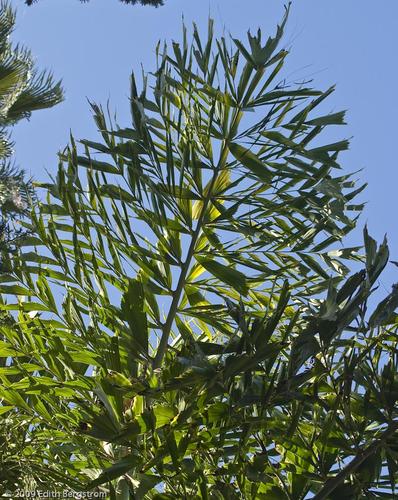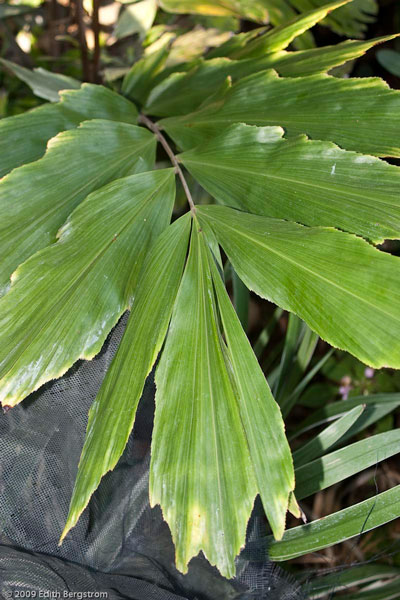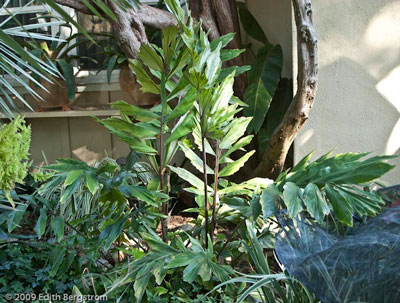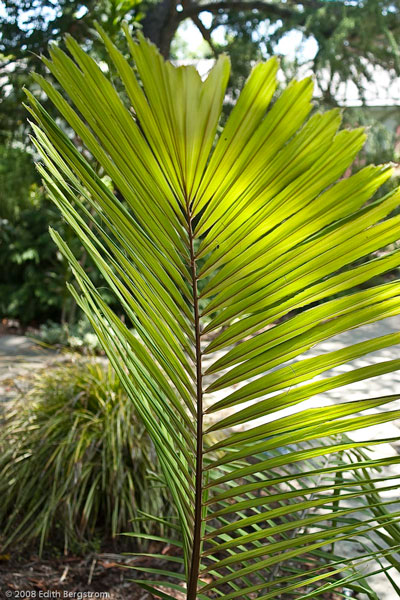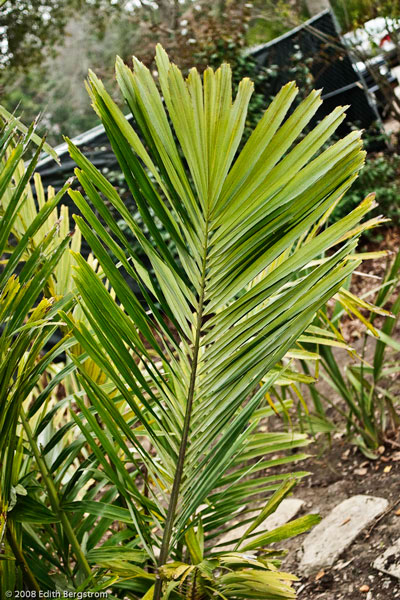Leaf Group 3: Types A. B. & C. "Fishtail"
This family consists of three genera with unevenly notched sometimes undulating leaves. They can be short, oval, or long wedges or broadly pointed. The terminal pair of leaflets of the rachis are usually merged.

Type A. Caryota
Characteristics
- The angles of attachment to the rachis are fairly uniform.
- Instead of leaflets attaching to the main rachis they attach to the secondary rachis. This is called doubly pinnate. These additional structures create a very unique appearance.
- Unevenly notched leaves.
- The leaflets terminating the rachis are usually merged.
There are twelve species in the Caryota genus. The ones that are growing in some of the mild San Francisco micro climates are C. gigas, C. maxima, C. ochlandra and C. urens. After the 2007 freezes I only have C. urens. left.
Type B. Wallichia
Characteristics
- Wallichia consists of approximately six species with unevenly notched, sometimes undulating leaves which grow from the rachis at a uniform angle.
- The terminal pair of leaflets which concludes the rachis is usually merged.
- Most species are small and clustering. I have grown only W. densiflora outside, but I have seen Wallichia disticha growing at the University of California Botanical Garden at Berkeley.
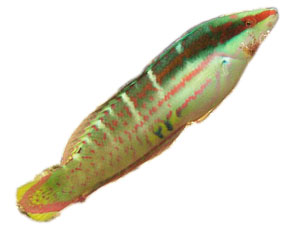
Similar genera: Check out Chamaedorea, Leaf Group 4
Type C. Arenga
Characteristics
- The leaves are long wedges or broadly pointed and are regularly arranged in an ascending order.
- The terminal leaves on the rachis are fused.
- The plants are medium size to about ten feet. There are seventeen species of which I am able to grow only the two pictured. Arenga micrantha is less hardy than A. engleri.
